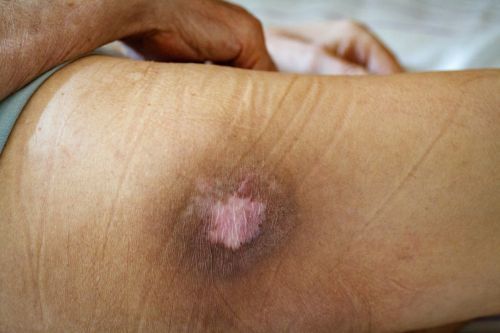My elderly mother developed severe bed sores within one month of living in a senior rehabilitation facility. Can I take legal action against the facility?
Severe bed sores are usually a sign of neglect. However, whether your mother can establish liability against the facility will require a detailed review of her medical records and other information.
What are bed sores?
Bed sores develop from prolonged pressure on the skin. So, people who sit in a wheelchair all day or who lay in bed in the same position for prolonged periods are at risk of developing bed sores. Bed sores are categorized in four stages ranging from mild (stage 1) to severe (stage 4). Bed sores can look like an abrasion, a blister, a crater-like sore, or an infected wound. Bed sores are incredibly painful. Failing to adequately treat bed sores can lead to life-threatening infections and even death.
Bed sore Lawsuits
Numerous nursing homes and other healthcare facilities have been sued for neglecting their patients by (1) failing to prevent bed sores, or (2) failing to adequately treat bed sores once they have developed. There are established measures that should be undertaken to prevent and treat bed sores. Some of those measures include the following:
- Regularly inspecting the patient’s skin for bed sores
- Frequently repositioning the patient (to prevent prolonged pressure on problem areas of the patient’s skin)
- Using gel cushions and mattress overlays (to reduce pressure on problem areas of the patient’s skin)
- Applying antibacterial creams or prescribing antibiotics (to promote healing)
If the failure to do these things (and other measures) proximately caused the patient to develop bed sores or caused the patient’s bed sores to worsen, then the facility may be liable for negligence. Examples of the types of situations that have resulted in bed sore lawsuits include the following:
- A 65-year-old patient reported to a nursing home with a blister on his heel. The staff described the blister as “intact” in the patient’s medical records and did not treat the blister. About ten days later, the blister had developed into an open wound that was weeping pus and had a foul smell. The patient was diagnosed with a stage 4 bed sore and was forced to undergo surgery.
- An 80-year-old patient was transferred to a senior rehabilitation center. The patient was incontinent and already had a stage 2 bed sore. The patient’s medical file included a physician’s order stating that the patient needed to be repositioned every 1 to 2 hours. The staff at the senior rehabilitation center did not treat the bed sore and repeatedly left the patient lying in her bed, soaked in urine and feces for hours at a time. As a result, the patient’s stage 2 bed sore became infected, and she developed more bed sores that also became infected.
The bed sore attorneys at SMITH LAW are passionate about helping victims of neglect at senior rehabilitation centers, nursing homes, and other healthcare facilities in the state of Georgia. Contact us for a FREE case evaluation.





